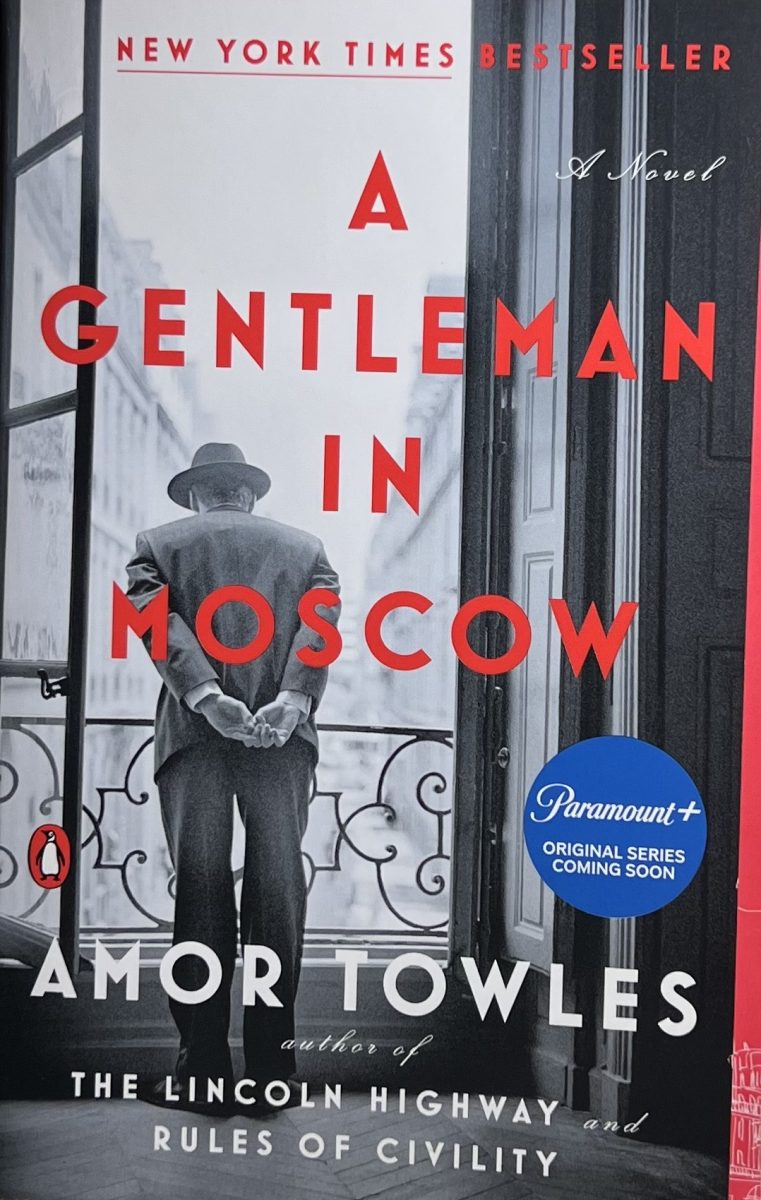Amor Towles’ “A Gentleman in Moscow” is a wildly entertaining and reflective historical fiction novel set in Moscow from 1922-1954 that follows Count Alexander Ilyich Rostov. The book was first published on Sept. 6, 2016, and a TV adaptation by the same name premiered in March of 2024 on Paramount+.
The story starts with the Count being sentenced to indefinite house arrest in the Metropol Hotel, his permanent residence, by a Bolshevik tribunal following the Bolshevik revolution. He is also moved out of his suite and into a small attic on the sixth floor. The Count, an eccentric and intelligent man, attempts to make the best of his situation, but it’s quite difficult. He gets bored with his new centralized life quite quickly, until he meets a precocious nine-year-old girl, the daughter of a widowed Ukrainian bureaucrat, named Nina who is also staying at the hotel for a spell. The Count and Nina form a touching friendship and explore the entirety of the hotel, even behind locked doors, as Nina, a curious girl, had somehow come into possession of a master key.
Over the thirty years the Count spends in the hotel, he meets and befriends a myriad of people that add a richness to the story. The Count’s conversations with all these different characters–a young girl, a famous actress, a former Red Army colonel, and many more–are full of many observations of humanity and philosophies of life. His conversations flow from Impressionism, the great Russian writers, poetry, post-revolution society, bees, manners and politeness, etc., so that even though the setting of the story doesn’t change, the reader never has a reason to be bored. The Count is a brilliant conversationalist who, by the end of the book, leaves the reader most of all with a desire to sit down to dine with him.
One fun aspect of the book were the chapter titles. Every chapter title started with the letter a, which made for many fun titles such as “An Actress, an Apparition, an Apiary” and “Arachne’s Art.” Towles doesn’t have a real reason for this, and has stated that early in the drafting process he felt an instinct that he should have a rule for the chapter titles, and followed that instinct. It could have also been the author’s own version of a game that the Count and his foster daughter play in the book. The game is called “Zut”, and they played it as they were waiting for their appetizers almost every day. One person, the loser of the last game, comes up with a category such as “famous foursomes” or “common uses for wax”, and the two took turns naming things that fall into those categories–like the four seasons or the cardinal directions–until one of them couldn’t.
The writing throughout the entire book is some of the liveliest I’ve ever read, with beautiful, rich descriptions and a steady pace. “A Gentleman in Moscow” is a well-rounded novel with dynamic characters, engaging writing, and keen discussions, all of which earn it a 5/5.







